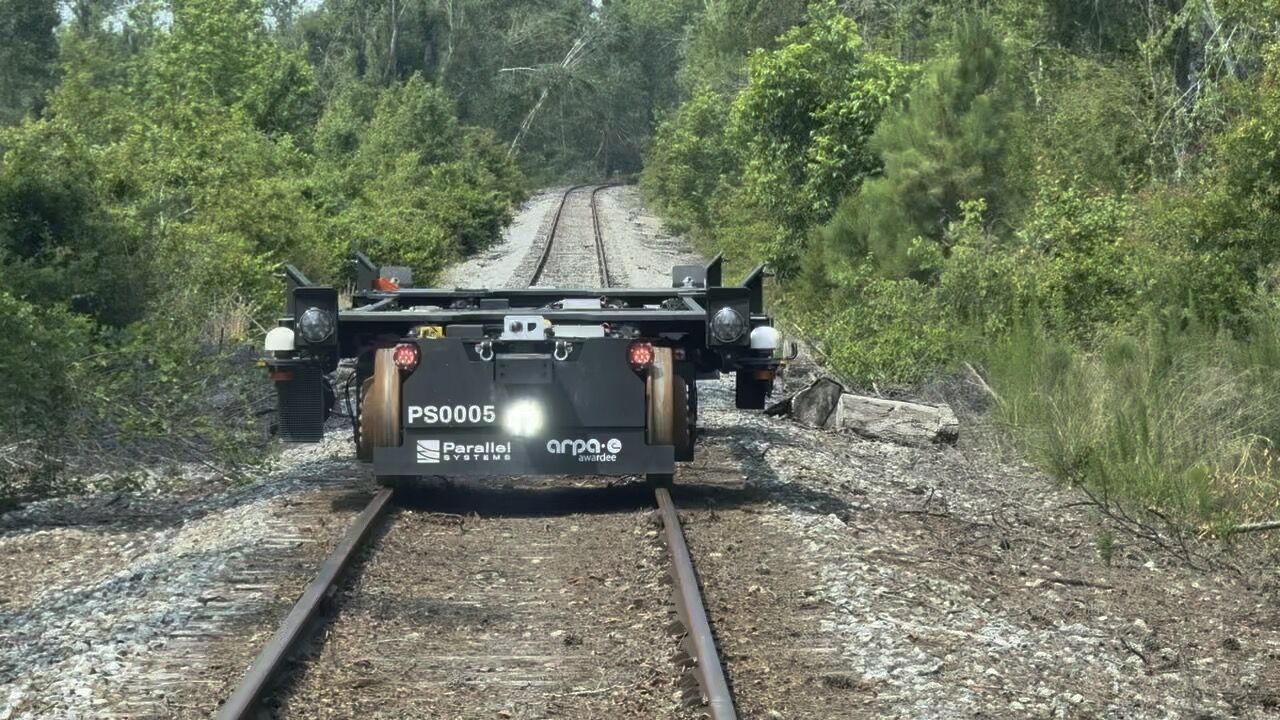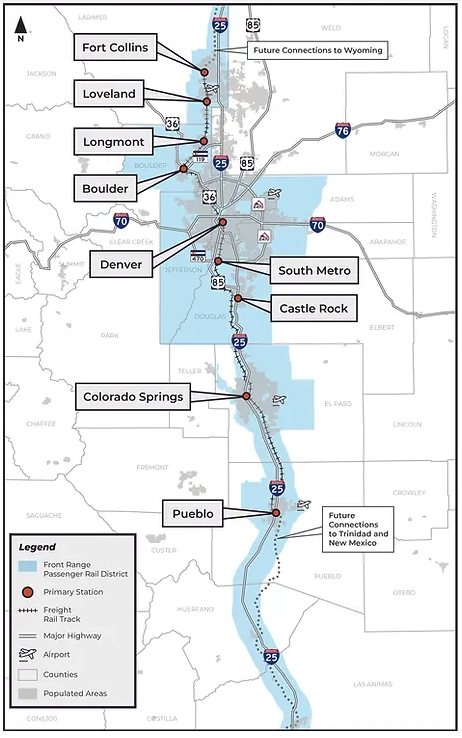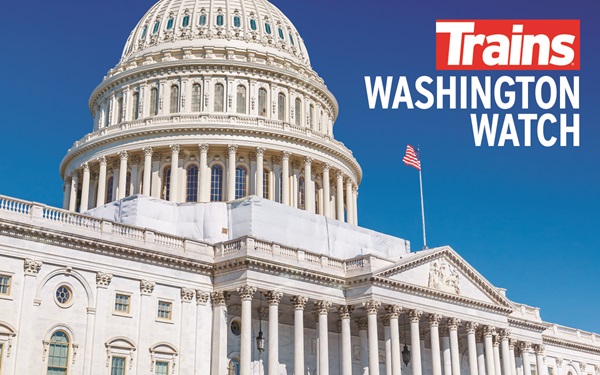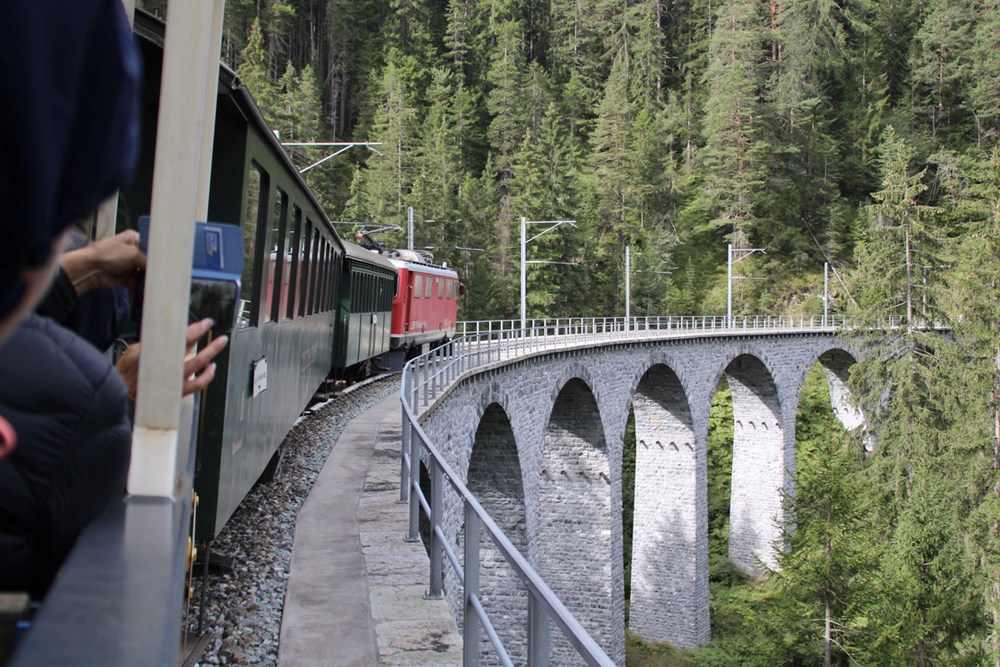WASHINGTON — Former Democratic presidential candidate and Massachusetts Gov. Michael Dukakis remembers his time on the Amtrak Board of Directors as working with people well-versed in transportation and “committed to the simple but powerful notion that the entire country needs a first-class rail passenger system.” Former Amtrak president and CEO David Gunn similarly remembers the board he worked with as being an intelligent group with backgrounds in transportation.
Both men have concerns about the current nature of the Amtrak board.
The Senate Commerce Committee Committee held a confirmation hearing Wednesday on the Trump Administration’s latest nominee for the Amtrak board, former U.S. Rep. Todd Rokita (R-Ind.). Rokita voted for unsuccessful efforts to cut Amtrak funding through budget amendments in 2011, 2015, and 2017.
Three of the president’s previous nominees, Joseph Gruters, Rick Dearborn, and Leon Westmoreland, were submitted for confirmation in 2018 and resubmitted this year but yet to be confirmed because U.S. Sen. Jerry Moran (R-Kan.) has put a hold on all of their confirmations.
Moran and other GOP and Democratic senators from Kansas, Colorado, and New Mexico have assumed an activist, oversight role ever since Amtrak’s management last year attempted substitute bus service for part of the Southwest Chief.
All of President Donald Trump’s proposed board members are politically engaged Republicans with no transportation experience; Westmoreland, a former Georgia congressman, voted for two of the same “defund Amtrak” amendments as Rokita.
Dukakis, now a college political science professor who splits teaching between Northeastern University and UCLA, tells Trains News Wire the Amtrak Board he served on “was bipartisan by agreement. I don’t think any of us bought into the idea that Amtrak would pay for itself; we never talk about highway (losses), right? We have to serve all parts of the country, and in any event, we have an infrastructure deficit, and that means public funding (to fix it). The board I served on was quite unified around that notion.”
He says, “Whether it’s (Amtrak’s) state corridors, Northeast Corridor, or the national network, the money is certainly all coming from the same place. Highways, trains, and airports are all public resources of a national transportation system that deserves support.
“It’s a question of what you think your priorities are,” Dukakis continues. “Don’t get me started on the size of the defense budget and what’s going on there — it’s just preposterous. My prescription, get us a new president and a congress that supports a strong passenger rail system and let’s go to work!”
Gunn, meanwhile, tells Trains News Wire, “I was lucky when I went to Amtrak because I had Mike Dukakis, John Robert Smith [now Chairman of Transportation for America], Gov. Linwood Holton [Republican from Virginia] and a very smart guy, Michael Jackson, who was the Department of Transportation representative, on the Board.”
As the board’s acting chairman in 2002, Dukakis made the phone call to then-retired Gunn in Nova Scotia, urging him to take the Amtrak job. They became friends when Gunn ran Boston’s Massachusetts Bay Transportation Authority.
Gunn recalls that when he was CEO that Jackson, the DOT representative, “wasn’t a pro-Amtrak guy but he believed in honesty, telling the truth and getting things done. He would give you a heads up if you were getting on thin ice [with the George W. Bush Administration] and when you weren’t — he was good at that. Jackson wouldn’t fit in today,” Gunn quips.
But Gunn warns, “Politically appointed boards are worthless and dangerous if they bring nothing to the party.” Gunn is especially concerned now because following management buyouts over the last two years, Amtrak lacks employees and managers who know, understand, and appreciate railroad practices—what works and what doesn’t.
“It’s very sad what’s going on now at Amtrak — the institutional knowledge is almost destroyed. And the people being nominated (to the board) to oversee them are, at best, lazy politicians.”
In Wednesday’s hearing, Rokita defended his votes against Amtrak funding by saying his vote “sent a message” to Amtrak about fiscal responsibility, but that he favors a robust passenger train system. In response to a question from Committee chairman Roger Wicker (R-Miss.), Rokita said keeping a national system was a priority and that he had “no preconceived notions to eliminate” any trains.
No action was taken on the nomination. Committee members will be given time to submit more questions to Rokita in writing before voting on his nomination.















It is a mess and we need more people on board who really care about trains and understand them. Which “prop head” and his gang do not understand. Airlines and highways are subsidized, so what is the big deal about always complaining about Amtrak. I have been on a few trains in the last few months and every one of them has been packed with people, so they are riding.I am talking about LD trains like Zephyr and Eagle and even the shorter rides between KC and Chicago. Wake up board, you do have a customer base and don’t mess it up. Many of them have to go and get people on the board who do understand what the public wants about riding trains.
Almost fifty years of experience with Amtrak as a rider and talking and hearing people. Here is my take: Amtrak provides union jobs (debatable whether they’re “cushy” jobs) and feel-good points to those concerned about Saving Whales and Climate Warming/Whatever; all these people must be “squared”. Unknown how many really ride. Then there are those who note the smallish number of real riders and all the huge costs of all this blahblahblah etc.; these people must be “squared” too. And AMTK itself doesn’t seem that concerned about getting more passengers just as long as they have their “jobs” too. Amtrak earned a lot of bad will by cancelling all off-line special moves (Bennett Levin’s train) and earlier by dropping overnight sleeper service I used on the NE Corridor. The result of all this is the mess we now have.
Cut to the chase: a certain high-density corridors has some volume and must be kept (but how?) because no longer having it would be a real mess. How to handle the corridor is the problem. The Rest is Make Work and Make FeelGood Talking Points. Arranging the Amtrak Board is re-arranging the layout of the lounge chairs on The Twentieth Century in November 1967. If the Left-Progressives get in in 2020 Open Borders, Medicare for All, and Free College will have a much higher priority than Amtrak trains. Then what happens when the Iranians lob a nuke at Israel–if we survive the nuclear exchange?
I question whether there are the “time slots” available for passenger trains unless the freight RR’s go back to running psgr trains. The Erie and large parts of the B&O are gone. Bypass routes and former main line are gone. There are reasons these disappeared; we should know them.
Charles you’re only half right.
I don’t think any Amtrak leader (or leaders) has been especially overwhelming in their ability to transform or lead Amtrak. It has been maintain status quo for as long as possible.
Personally, I think Amtrak should become more like the FAA.
Certify private operators, their trainsets based on operating standards with the FRA, (just like we do with planes) and semi-regulate the ROW where the operators want to operate. Operator petitions/bids Amtrak to run a route for example.
Work with the host railroads to auction off rail slots where the operators can run their routes.
Create a rail transport oversight that manages rail traffic like air traffic control does. Let the host railroad manage their routes as they always do, Amtrak would simply monitor the transfers from private ROW’s, Amtrak owned ROW’s or other operator owned ROW’s. Not unlike regional ATC’s handing off planes from one region to another as they traverse the country.
Just like the FAA controls air slots at airports. Just like the FAA determines primary air routes. Just like the ATC maintains fluidity.
If the host railroad adds capacity, they can auction off more slots. If the host railroad wants to shed capacity, Amtrak can purchase the route and continue to charge the operator its time slot charges.
If a local municipality wants Amtrak operated service they have to pay for the capacity to get it, just like they build airports today to get air service. This is not new as when cities or developers build business/factories, they pay to have the rail connection installed, not the railroad.
Essentially this gets Amtrak out of the passenger operations business and puts them more as a passenger facilitation business.
So I create a “Big Iron Rail” company. I want to offer a passenger service from Chicago to NYC.
First I would bid for the route with the available time slots.
Second I would bid or pay for a terminal slot as CUS and Penn since both are owned by Amtrak.
Third, Acquire my cars and engines and have them certified by Amtrak
Fourth, run the route at the time slot that was paid for.
If I paid for a “premium” time slot during the auction, Big Iron Rail would get the best start time leaving Chicago and the best entry time entering NYC. The best gate closest to the terminal.
If I paid for a “economy” slot, Big Iron Rail would leave CUS at a time slot less convenient and at a gate farther from the terminal.
The more on time the operator is, the more the host railroad would be paid in bonuses, especially for the premium time slots.
The economy time slots would pay less bonuses for on time performance to the host railroad.
Premium would allow full luggage service, whereas economy will only allow carry on’s.
The list of service types is endless.
Anna, I hope there are many good lawyers, you for instance.
Perhaps we’re at the point where we need to put Amtrak into receivership to make needed changes in management and business practices, with the USDOT/FRA Administrator, currently Ron Batory, as the Receiver. I didn’t come up with this idea, but I believe Batory to be a far better leader/manager than Amtrak’s current board of directors and CEO.
Well, yes … but Our Lords and Masters have decreed that Amtrak Will Die. And so it shall be …
Waitaminute. Was that the inside voice or the outside voice? I better check …
The above comments are general in nature and do not form the basis for an attorney/client privilege. They do not constitute legal advice. I am not your attorney. Find your own damn bloodsucker.
OK GALEN – Write your comments about the article. We’re all waiting. That way we grumpy old guys won’t have the last word, you will have the last word.
PS David Gunn was the best Amtrak CEO. Glad he and Mike Dukakis spoke up. It needed to be said and you couldn’t find two better men to say it.
Oh! I see both Grumpy Old Men are up from their naps! No point for the rest of us to bother commenting any further because they will always have to have the last word. So you win!!
Mr. Riley, the article is about politics what do you expect people to comment on?
Just to add my two cents, Dukakis was better off driving tanks.
Here we go again certain people getting off topic with their personal political rantings some people just can’t seem to FOCUS!!!
How about this.. The government has no business operating any enterprise…
Dukakis and Gunn are spot on. Any government organization overseen by a board of political hacks is bound to be out of control, since the operating execs can bluff their way into running it anyway they choose, usually straight into the ground.
Michael Dukakis- the last presidential candidate from the Democrat side I voted for. A real smart guy and a real good guy, like his friend David Gunn. (Something about Greek Americans from NE Massachusetts – the late Paul Tsongas was another fine Democrat back when there was such a species.)
Dukakis is wrong though (and exhibiting the partisanship he decries) when he suggests that the current crop of Democrats (Communists would be a more accurate label) will fix Amtrak. By the time they subsidize their constituency – the upper middle class and the rich – with free college and the forgiveness of existing college loans etc etc., there won’t be a penny left for anything else.